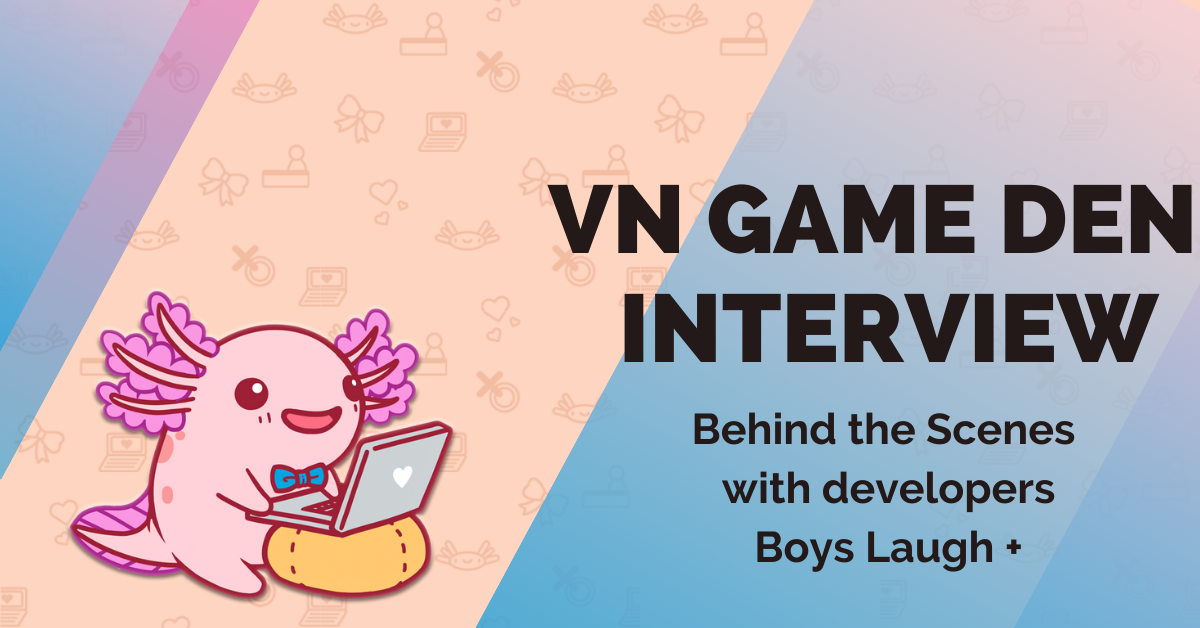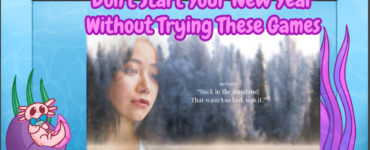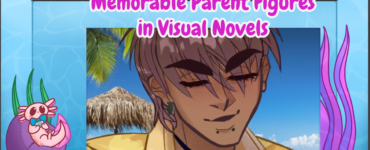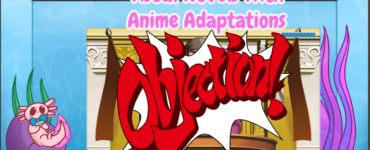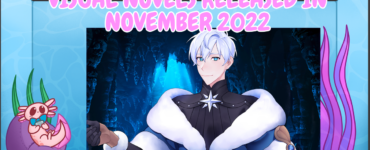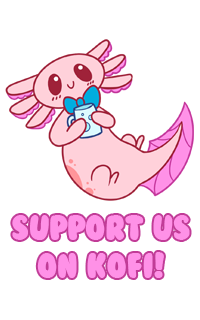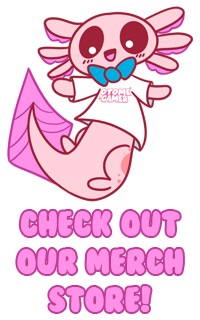You may recognize developer Boys Laugh + from their many published titles including //TODO: today, Defaction, and the currently updating Brassica. Their studio focus on creating content with impactful choices, LGBTQ+ themes, and inclusivity. Behind the games are German-based developer duo Felix and Rohan, both with creative backgrounds and a passion for emotionally-resonant narrative-based games.
We caught up with Felix and Rohan to discuss their visual novel background, their inspiration behind //TODO: today, and their commitment to inclusivity.
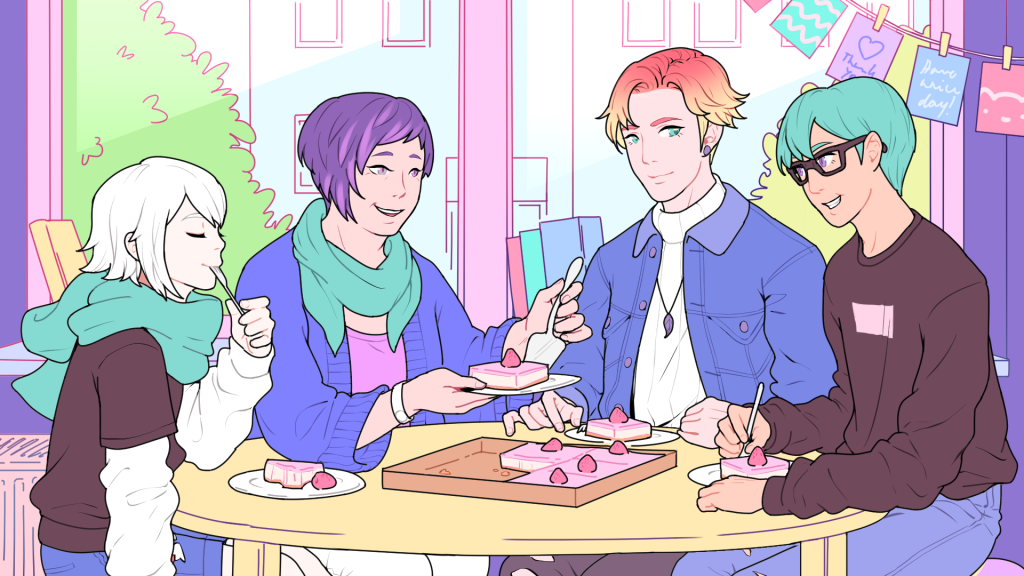
How did you get into developing visual novels?
Felix: Back in university, during a project where Rohan and I worked together, I used Ren’Py to prototype the branching of our storyline and from that we first thought about making a visual novel together.
Rohan: Afterwards Felix excitedly suggested we should join the NaNoRenO 2017, a visual novel game-jam held every March, just for fun. We already experienced how we would mesh as a team in the uni project. So we were optimistic and maybe a biiit naive that we could finish our first VN in a month.
Felix: We were also generally interested in VNs. Something that broke the ice between us was actually DRAMAtical Murder. I made a playlist as inspiration for our uni project and used some of its music which Rohan recognized.
Rohan: DRAMAtical Murder is a hardcore yaoi visual novel lol. I really had to drag Felix out for a walk and ask him about his thoughts on it. That’s how it all began.
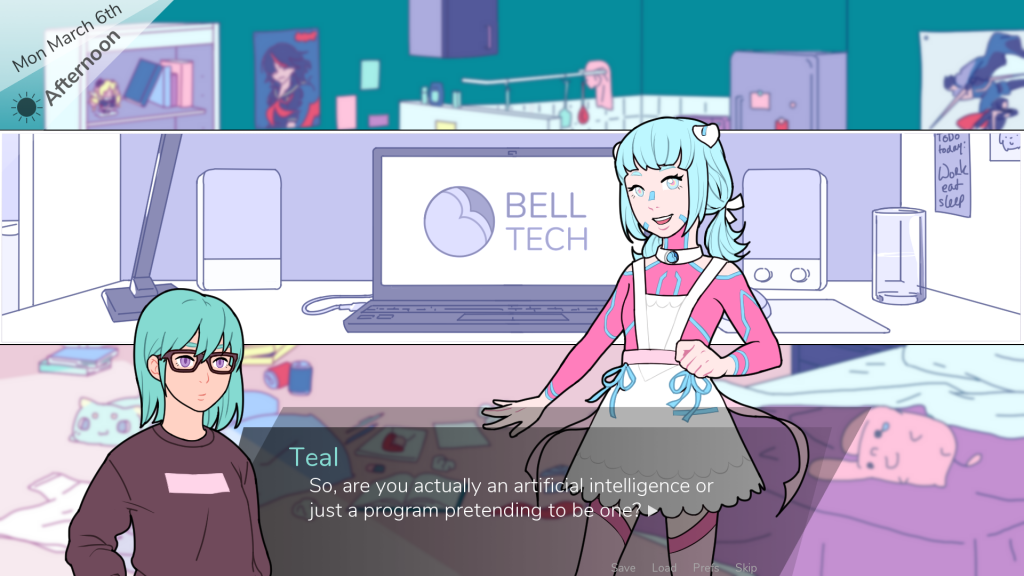
Where did the concept for TODO: today come from?
Felix: Before NaNoRenO started, we met up to think of a concept. I brought a list with a few ideas I had, and from that we chose the one we liked the most as a starting point. The AI theme is the only thing from it that’s still in //TODO though. At the same time we also decided to make the protagonist’s and the love interests’ gender variable so the player could experience the romance aspects however they wanted.
Rohan: 2017 was the year lo-fi, pastel art and slice-of-life were established as an internet youth culture vibe, I think. Wanting to create something fresh and moving away from the classical high school romance setting, we took inspiration from what we experienced in our feeds at the time and thought would be relatable to people like us: gamers, artists, students, sometimes weebs, sometimes sad.
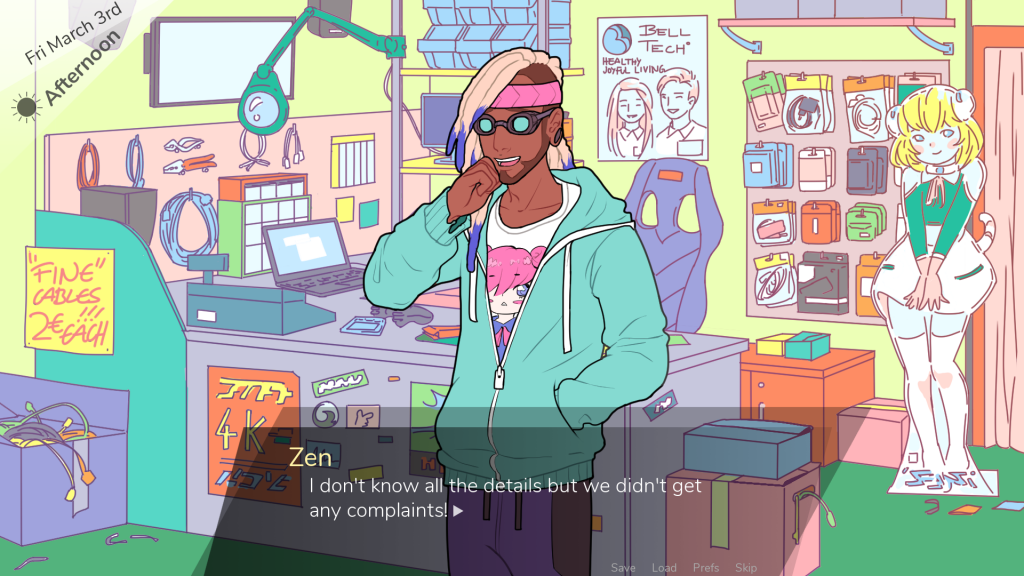
How do you highlight inclusivity in your games?
Felix: In //TODO our focus was more on the story itself than specific identities so we wanted to let the player choose their pronouns and romantic preferences. This required additional art and writing, but also opened the game to a lot more people than if we had gone with fixed characters.
A core idea of Brassica was to subvert the fairy tale trope that the princess marries a prince at the end and make it gay instead. So because the story is more specific in how it deals with gender and sexuality, it seemed right to define the characters beforehand and give them clear identities.Rohan: No matter the player’s preferences, in //TODO we wanted them to have an experience that feels tailor made. And a diverse cast is always important to us! We pick our cast by what the story needs and afterwards add individuality to them. Everyday life is filled with all kinds of people and reflecting that can make stories more authentic. I think the only thing that limits our presentation is personal experience. I’d love to include (queer) elderly people, less represented cultures or the disabled in the future. Lots of thorough research before we can respectfully do that though.
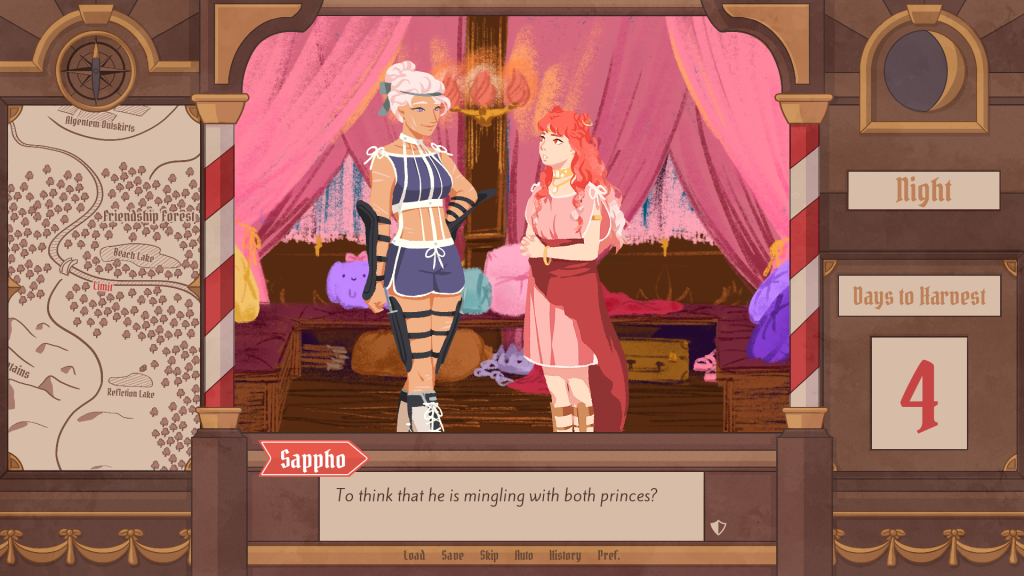
Can you tell us a little about the creative process behind Brassica – A Marry Tale?
Rohan: Brassica – A Marry Tale started as a game jam project as well. The foundation of its story and how we approach it, is to keep things as concise as possible and have fun with it. We were tired of telling serious stories, haha. We finished writing the plot summer 2018 and are working on and off on it since then.
Felix: As with our other projects, we developed the basic concept and plot together. Rohan is responsible for all the art, while I handle writing, programming, and audio. We still make sure to ask each other for feedback on all our work though.
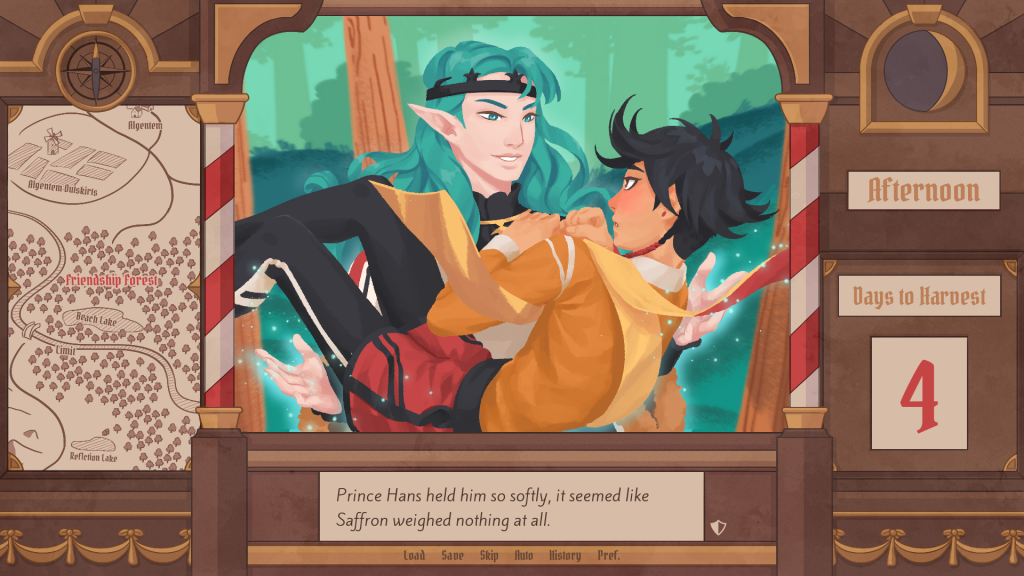
What achievements or milestones in your visual novel development career are you most proud of?
Rohan: The both of us, I think, feel most proud when people write how a game has moved them deeply. When we finished half of //TODO: today and then when we released the full game. It’s nice to know that with every release, we can add to the diverse landscape of story games out there.
Felix: I definitely second that. //TODO especially deals with a lot of personal themes, so hearing from others that the game helped them find motivation or made them feel represented is a really special feeling.
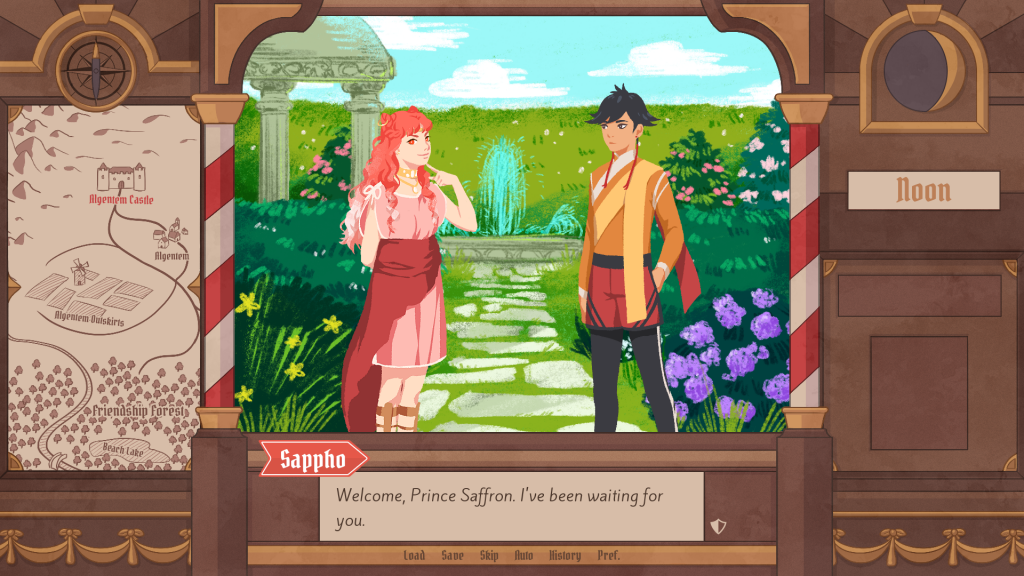
What advice would you like to offer people who are interested in creating visual novels?
Rohan: Keep it short!!! For your own sake. Getting into development can be scary but there are easy to use engines out there, even for artists without programming skills. And if you want to share your visual novel, getting feedback during production is very helpful!
Felix: Finishing projects is super valuable to improve. We’ve been making VNs for over four years now, but I don’t think I would have learned nearly as much if we had spent the same time working on just one game.
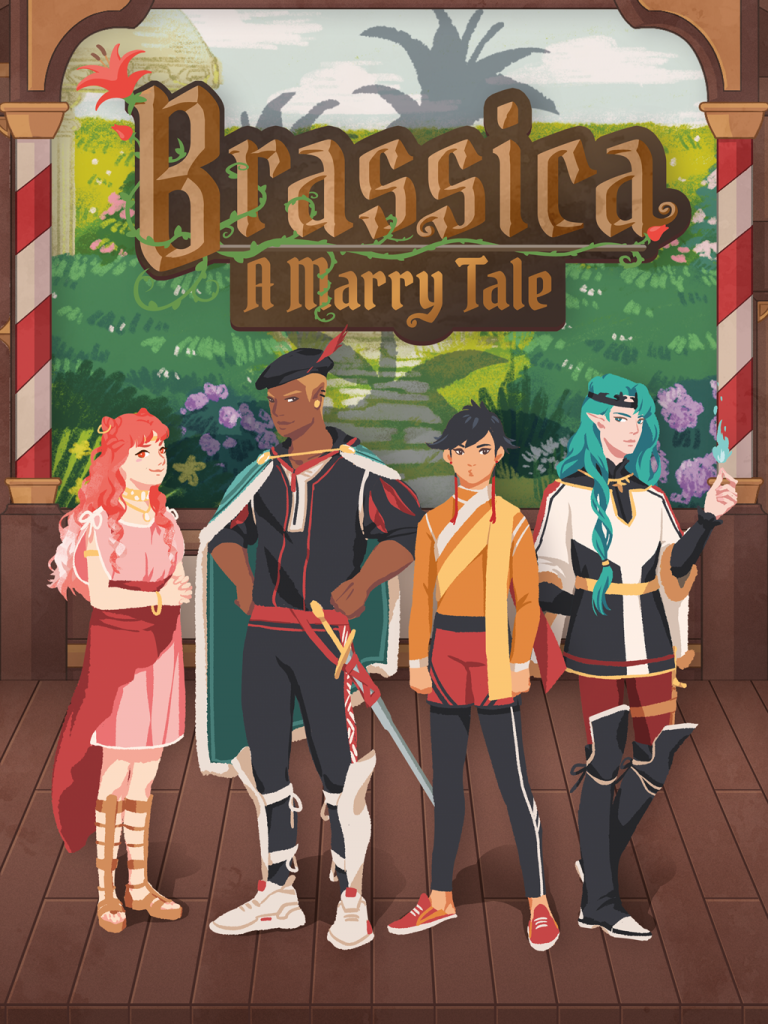
Can you tell us a bit about what you’re working on now?
Rohan: Brassica is our priority project at the moment. We’re currently working on the third (out of five) story acts of it. The UI is getting a glow up as well.
Felix: Work on Act 3 had to take a backseat to other projects for most of last year, so we’re really excited for when we can finally release it.
Follow Boys Laugh + on Twitter or check out their itch.io page & website for updates about their future projects.

